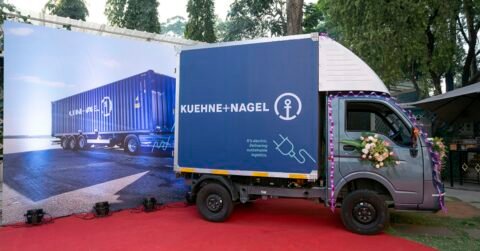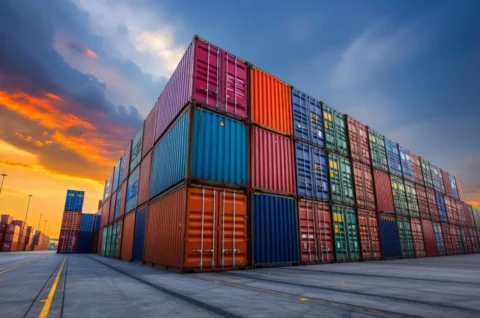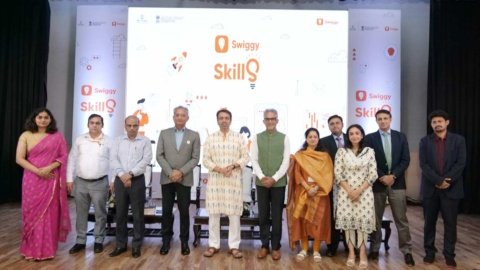The Federation of Freight Forwarders Associations in India (FFFAI), in its ongoing 24th Biennial Convention, being held from August 12-14 in Chennai, introduced the FIATA Bill of Lading (eFBL) in India.
This was formally launched today by Sarbananda Sonowal, Union Minister of Ports, Shipping & Waterways and Minister of AYUSH, who attended the Convention as Chief Guest to inaugurate the Business Sessions on August 13, 2022 in presence of Shankar Shinde, Chairman, FFFAI; AV Vijayakumar, Immediate Past Chairman, FFFAI; Dushyant Mulani, Chairman-Elect, FFFAI; PK Agrawal, Pr. Chief Commissioner of Customs, Mumbai Zone – I; other eminent dignitaries and more than 600 delegates from across India and overseas countries.
The FIATA Paperless Bill of Lading allows the freight forwarder to easily issue secured eFBL through their everyday tools (TMS and other software), facilitating the issuance process by removing double data entry. Freight forwarders can then decide in which format they wish to share the document with their stakeholders: as a secured printed document or in digital format.
Established over 30 years ago, the Negotiable FIATA Multimodal Transport Bill of Lading is a trustworthy and reputable trade document, mainly thanks to its Terms and Conditions, which includes the necessity for the document issuer to be a valid FIATA/National Association member and to have a valid liability insurance.
It is the only truly multimodal Negotiable Standard Bill of Lading, set up by FIATA for use by Freight-Forwarders acting as Multimodal Transport Operators (MTO). The ICC logo, visible on the top right of the document, demonstrates its conformity with UNCTAD/ICC rules for Multimodal Transport Documents.
The FIATA Paperless Bill of Lading is based on Blockchain Technology and hence provides the much needed transparency, security and accountability in the supply chain.
Each paperless FBL is registered with a unique hash on a private ledger and provides for an audit trail which is accessible to all stakeholders interacting with the document, by simply scanning the unique QR code – thereby ensuring security in the supply chain. The FIATA paperless Bill of Lading solution is open source and can be implemented by any interested software provider.
Introducing the eFBL, Shinde stated that FFFAI, one of the members of the International Federation of Freight Forwarders Associations (FIATA), has signed an MoU with the parent entity to implement the same in India to benefit Indian customs brokers/freight forwarders and significantly improve Ease of Doing Business, in view of the rapid change in the entire logistics/supply chain industry owing to digitalisation.
Hon’ble Minister Sonowal also stressed upon the growing importance of an IT-driven logistics industry for faster movement of cargo from manufactures to consumers across the globe. And FFFAI’s initiatives in this regard through services like eFBL would make Indian products to reach out global markets with reduced transaction times and costs, which in turn make Indian products competitive in International markets.
In a study done by the Digital Container Shipping Association (DCSA), the estimated savings if 50% adoption of the E-Bill of Lading is achieved, will result in a US$4 Billion saving annually across the globe.
Key Benefits of eFBL:
● To save time and money – Issue electronic documents within seconds and save money by avoiding costs generated by paper documents.
● To optimise the processes – Issue paperless FBLs directly from your TMS and avoid double data entry.
● To improve trust and security – Give the possibility to your stakeholders to verify at any time: the validity of the eFBL, your identity as well as the document content integrity.
● To achieve sustainability goals – Embrace a green solution, help saving paper and unnecessary courier services.
● To provide flexibility of format – Decide in which format you want to share your FBL with your stakeholders: in a paperless format (PDF) or you can always print it if needed.







